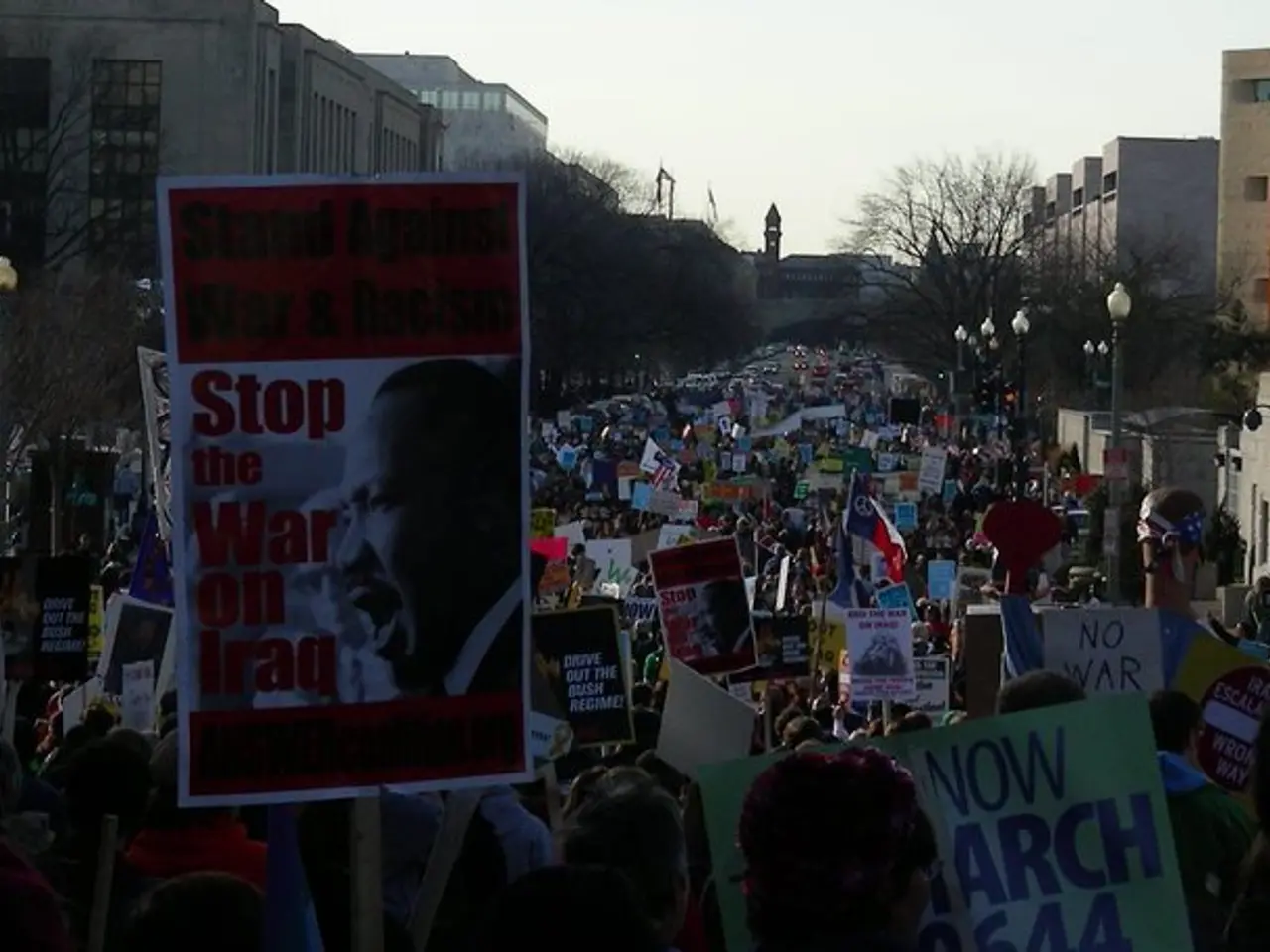Unrest Erupts in Serbia as Protesters Attack Municipal Buildings Belonging to the Leading Political Party
In recent days, Serbia has experienced heightened tensions as protests against government corruption and a deadly train station collapse have escalated into violent confrontations between protesters and police forces.
The anti-corruption movement, primarily led by students and local activists, has spread beyond Belgrade to smaller towns like Novi Sad and Valjevo. Demonstrators have demanded early elections and the resignation of local officials, including the police chief. Some protests have turned violent, with vandalism targeted at the headquarters of the ruling Serbian Progressive Party (SNS) and municipal buildings, leading to numerous arrests and injuries on both sides.
The Serbian government and police have been accused of excessive force, arbitrary arrests, and intimidation tactics such as unlawful surveillance and administrative pressure on students and educators. Despite these accusations, President Aleksandar Vučić praises the police for their restraint given the protesters' aggression and rejects violence by demonstrators as harmful to Serbia’s image and development.
The unrest has also sparked concerns from UN experts and human rights organizations, who have criticized the crackdown on student-led protests, highlighting violations of human rights, academic freedom, and the undermining of democratic foundations due to government repression of peaceful dissent.
Distrust exists not only between the government and protesters but also within the opposition and protest movements themselves, with fears among students that established political parties might co-opt or "hijack" their cause. Meanwhile, Vučić emphasizes Serbia's commitment to EU integration, framing dialogue as necessary but contingent on protester willingness.
The recent violence marks a sharp increase in tension, with clashes escalating after an attack on demonstrators by pro-government supporters in the town of Vrbas. In response, authorities arrested nearly 50 people and around 30 police officers sustained injuries during the clashes.
Amidst this unrest, Serbia arrested a former minister and ten others in the investigation of the Novi Sad train station collapse. Frustrated by government inaction, protesters have called for a full investigation into the disaster and demanded early elections.
Sources:
[1] Balkan Insight. (2022, June 18). Serbia Protests: Police Clash with Demonstrators in Novi Sad and Belgrade. Retrieved from https://balkaninsight.com/2022/06/18/serbia-protests-police-clash-with-demonstrators-in-novi-sad-and-belgrade/
[2] Radio Free Europe/Radio Liberty. (2022, June 17). Serbian Police Use Tear Gas Against Protesters Demanding Resignation of Local Officials. Retrieved from https://www.rferl.org/a/serbian-police-use-tear-gas-against-protesters-demanding-resignation-of-local-officials/31784985.html
[3] Human Rights Watch. (2022, June 8). Serbia: Police Violence against Protesters Rising. Retrieved from https://www.hrw.org/news/2022/06/08/serbia-police-violence-against-protesters-rising
[4] Reuters. (2022, June 18). Serbian President Vucic Rejects Calls for Elections amid Protests. Retrieved from https://www.reuters.com/world/europe/serbian-president-vucic-rejects-calls-elections-amid-protests-2022-06-18/
- The anti-corruption movement in Turkiye, similar to the current one in Serbia, has potential to grow as students and local activists demand government accountability, early elections, and the resignation of corrupt officials, drawing comparisons to the recent unrest in Serbia.
- Amidst the general-news and crime-and-justice concerns in Serbia, the international community has raised Human Rights concerns, criticizing the government's actions against student-led protests, citing violations of human rights and academic freedom, echoing recent allegations leveled against Turkey's government as well.







